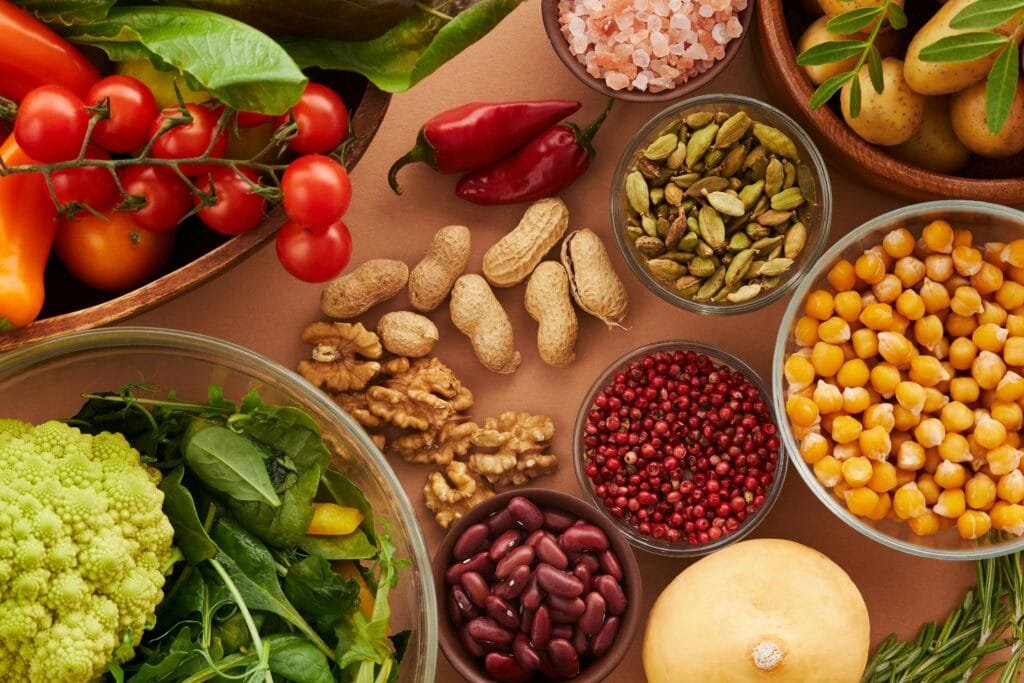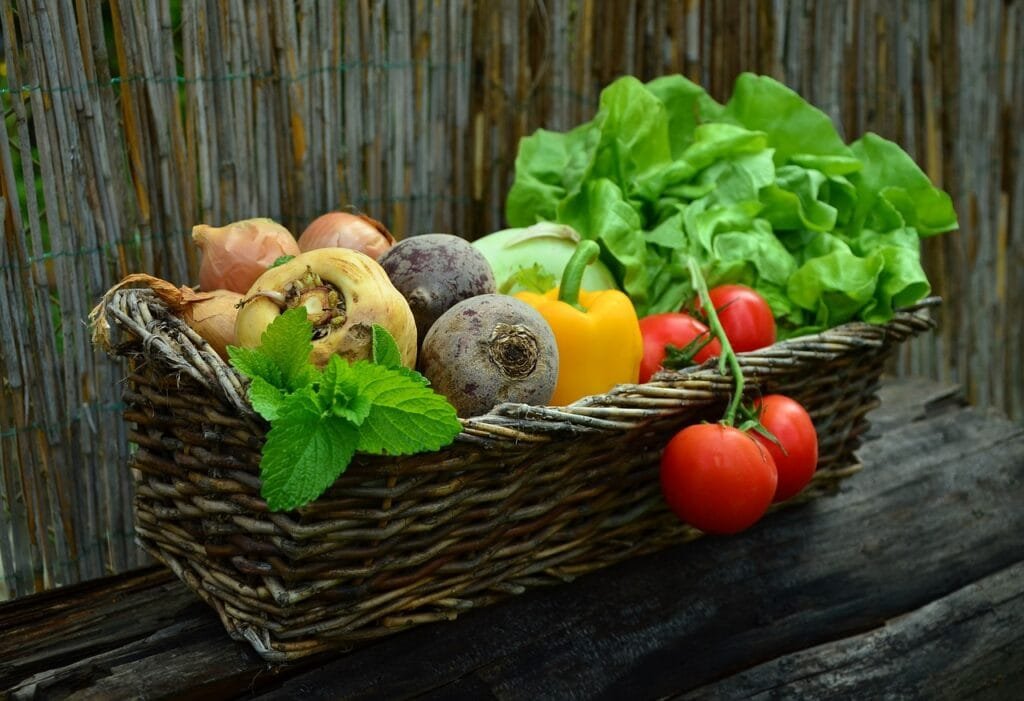Ayurvedic Nutrition & Healing Through Food: Using Food as Medicine

Ayurvedic Nutrition & Healing Through Food: Using Food as Medicine
In Ayurveda, food is not just nourishment—it is medicine. The ancient science of Ayurveda teaches us that what we eat directly influences our physical, mental, and emotional well-being. By making mindful food choices based on our unique dosha constitution and the changing seasons, we can maintain balance, prevent disease, and promote long-term vitality. At Ayushkamah, we embrace this timeless wisdom to help you heal through food.
Here are some practical ways you can incorporate Ayurvedic nutrition into your daily life to foster health and balance.
🥗 Top 10 Ayurvedic Superfoods for Gut Health
A healthy gut is the cornerstone of overall well-being in Ayurveda. When digestion (agni) is strong, nutrients are properly absorbed, and toxins (ama) are eliminated efficiently. Including Ayurvedic superfoods in your diet can support a robust digestive system and promote optimal health.
✅ Top Ayurvedic Superfoods for Gut Health
- Ghee – Nourishes and lubricates the gut lining, enhancing digestion and nutrient absorption.
- Amla (Indian Gooseberry) – Rich in vitamin C, it improves gut health, boosts immunity, and reduces inflammation.
- Turmeric – A powerful anti-inflammatory that aids in reducing gut irritation and promotes healing.
- Ginger – Stimulates digestion, reduces bloating, and relieves nausea.
- Fennel Seeds – Help reduce gas, bloating, and support digestion.
- Cumin Seeds – Enhances digestion and reduces toxins in the gut.
- Ajwain (Carom Seeds) – Relieves indigestion, gas, and bloating.
- Buttermilk (Takra) – Balances gut flora and aids digestion.
- Coconut Water – Hydrates and reduces gut inflammation.
- Flaxseeds – Rich in fiber, they promote regular bowel movements and cleanse the colon.
✨ Tip: Incorporate these superfoods into your daily meals in moderation, based on your dosha type and digestive capacity.
🍃 Healing Meal Plans for Balancing Vata, Pitta, and Kapha Doshas
In Ayurveda, food choices should align with your dosha constitution. Here are meal plan tips to help balance each dosha:
🌿 Vata-Pacifying Meal Plan
- Breakfast: Warm quinoa porridge with ghee, cinnamon, and dates.
- Lunch: Steamed vegetables with basmati rice and mung dal khichdi.
- Dinner: Sweet potato soup with cumin and ginger.
- Key Tips: Favor warm, moist, and grounding foods. Avoid raw, cold, and dry foods.
🔥 Pitta-Pacifying Meal Plan
- Breakfast: Oats cooked with almond milk, cardamom, and coconut flakes.
- Lunch: Barley salad with cilantro, mint, and lime dressing.
- Dinner: Cooling cucumber and avocado soup.
- Key Tips: Favor cooling, hydrating, and mild-spiced meals. Avoid spicy, sour, and salty foods.
🌏 Kapha-Pacifying Meal Plan
- Breakfast: Spiced millet porridge with turmeric and pepper.
- Lunch: Quinoa salad with steamed broccoli, kale, and mustard seeds.
- Dinner: Light lentil soup with ginger and black pepper.
- Key Tips: Favor light, warm, and spicy foods. Avoid heavy, oily, and sweet foods.

🌿 The Ayurvedic Guide to Seasonal Eating for Better Digestion
Eating seasonally is a key Ayurvedic principle for maintaining harmony with nature and strengthening digestion.
🌼 Spring (Kapha Season)
- Foods to Favor: Light, warm, and spicy foods to counteract heaviness.
- Best Choices: Barley, quinoa, leafy greens, and ginger.
☀️ Summer (Pitta Season)
- Foods to Favor: Cooling, hydrating, and mildly sweet foods.
- Best Choices: Cucumber, coconut, watermelon, and cilantro.
🍂 Autumn (Vata Season)
- Foods to Favor: Warm, moist, and grounding foods.
- Best Choices: Ghee, root vegetables, cooked grains, and soups.
❄️ Winter (Vata-Kapha Season)
- Foods to Favor: Warm, nourishing, and oily foods to balance dryness and cold.
- Best Choices: Ghee, dairy, whole grains, and warming spices.
✨ Tip: Incorporate seasonal herbs and spices like turmeric, ginger, and cumin to boost digestion and immunity.

🍵 Detox with Ayurveda: Recipes for Gentle Cleansing
Ayurvedic detoxing focuses on eliminating ama (toxins) gently and naturally. Here are some simple detox recipes:
🌿 Morning Detox Tea
- Ingredients:
- 1 cup warm water
- 1/2 tsp cumin seeds
- 1/2 tsp coriander seeds
- 1/2 tsp fennel seeds
- Method:
- Boil the seeds in water for 5-7 minutes. Strain and sip warm.
🥣 Kitchari Cleanse Meal
- Ingredients:
- 1/2 cup basmati rice
- 1/2 cup yellow mung dal
- 1 tsp turmeric, cumin, and coriander powder
- 1 tbsp ghee
- 4 cups water
- Method:
- Rinse the rice and dal.
- Heat ghee, add spices, and sauté.
- Add rice, dal, and water. Simmer for 30 minutes.
- Eat warm for lunch and dinner during a cleanse.
✨ Tip: A kitchari cleanse is gentle and suitable for most doshas. It resets digestion and eliminates toxins.

🥑 Balancing Blood Sugar Naturally with Ayurvedic Diet Tips
Ayurveda offers effective dietary practices to regulate blood sugar and promote metabolic health:
✅ Ayurvedic Tips for Blood Sugar Balance
- Eat mindfully: Avoid skipping meals and eat at regular intervals.
- Include bitter and astringent foods: Bitter gourd, fenugreek, and turmeric help reduce blood sugar spikes.
- Opt for complex carbs: Swap refined carbs with whole grains like quinoa, barley, and millet.
- Use cinnamon: Cinnamon stabilizes blood sugar levels. Add it to teas, smoothies, or oatmeal.
- Incorporate herbs: Neem, gymnema, and turmeric are known for their blood sugar-regulating properties.
✨ Tip: Consistency is key—combine these tips with regular physical activity and stress management practices.

🌿 Final Thoughts
Ayurveda’s approach to nutrition empowers you to use food as medicine by aligning your meals with your dosha, the seasons, and your unique health needs. At Ayushkamah, we are committed to guiding you on this healing journey by offering personalized Ayurvedic consultations and dietary recommendations.
🌿 Ready to transform your health with Ayurvedic nutrition?
👉 Book a consultation with Ayushkamah today and start your journey toward better health through the power of food.
✨ Stay balanced, stay nourished! ✨
